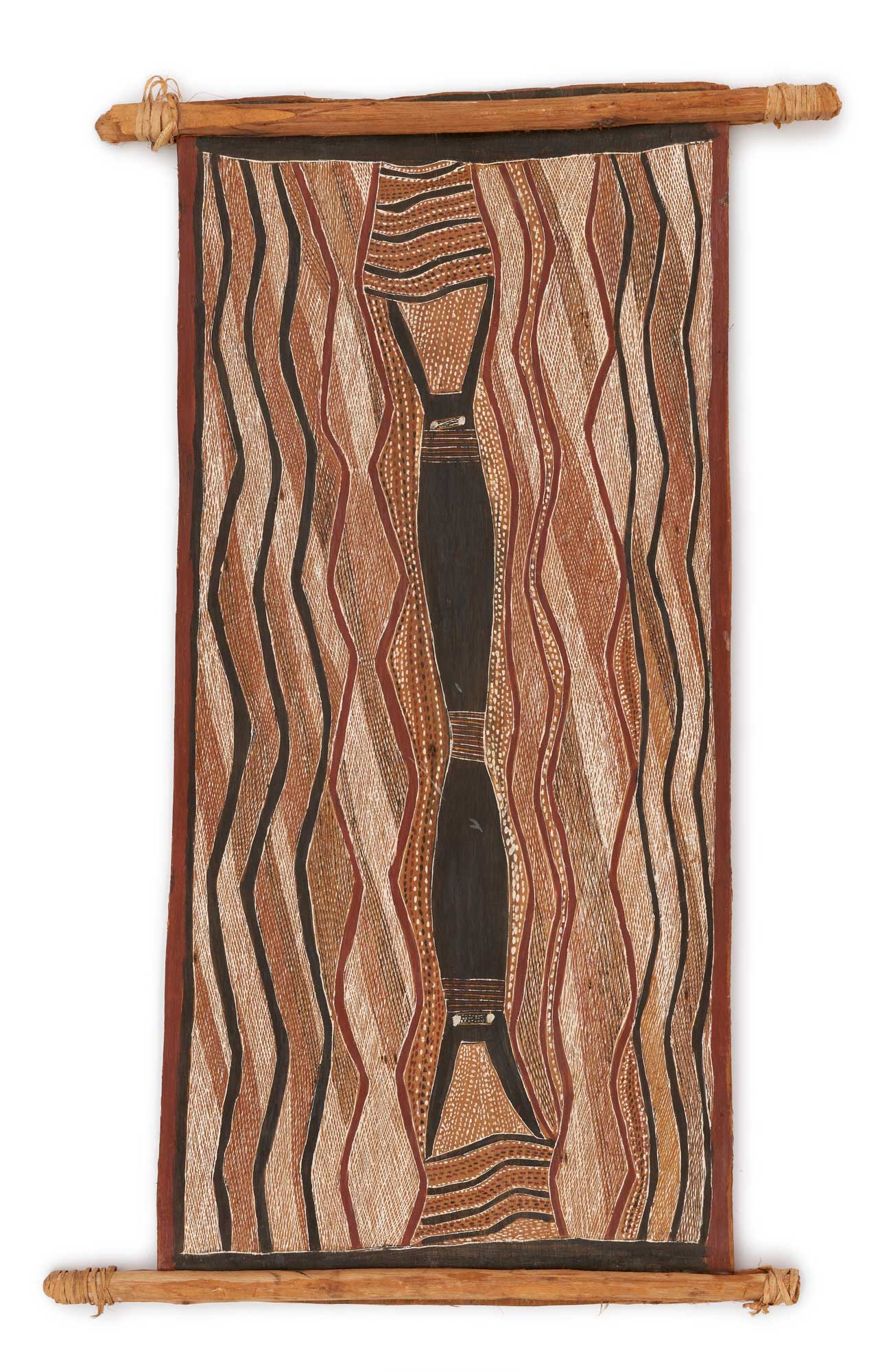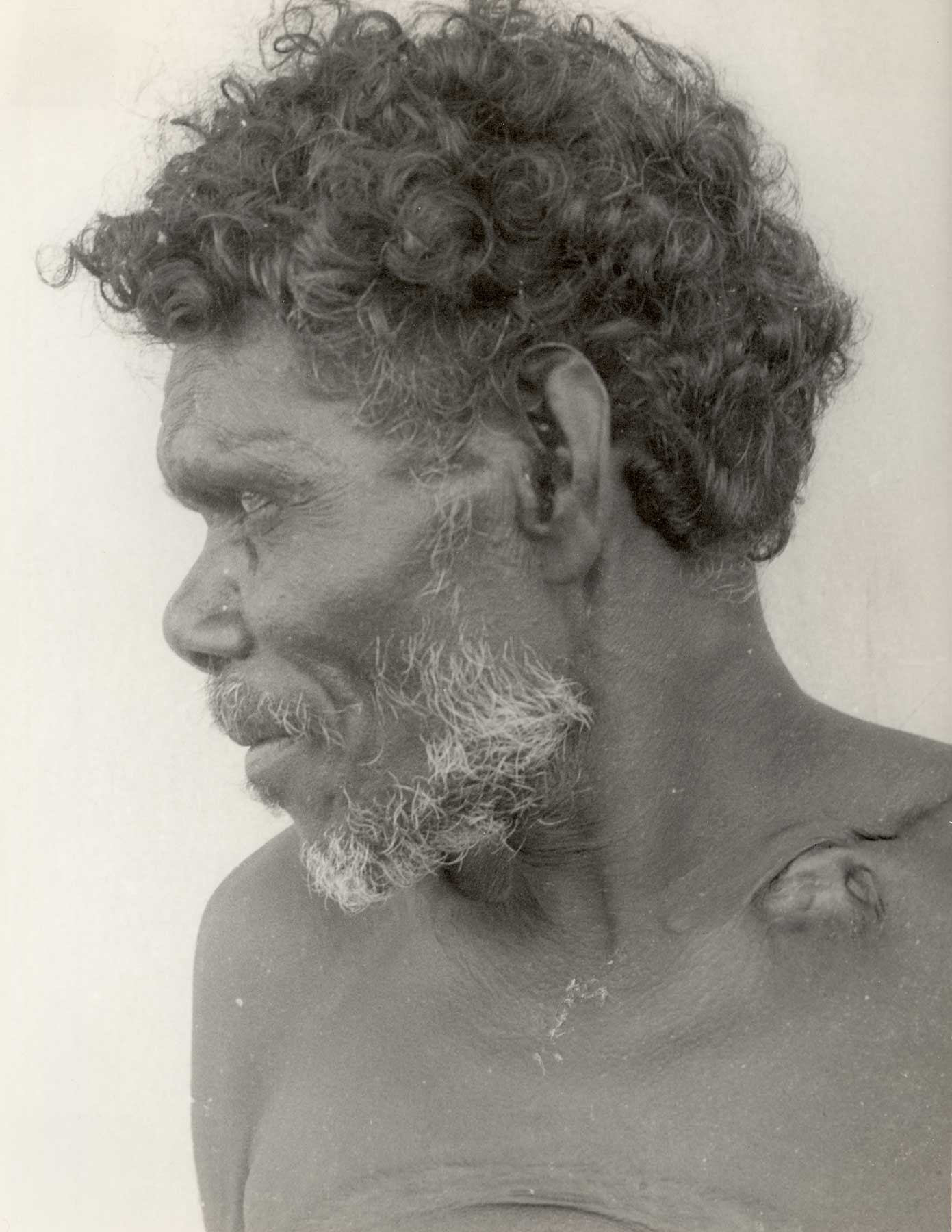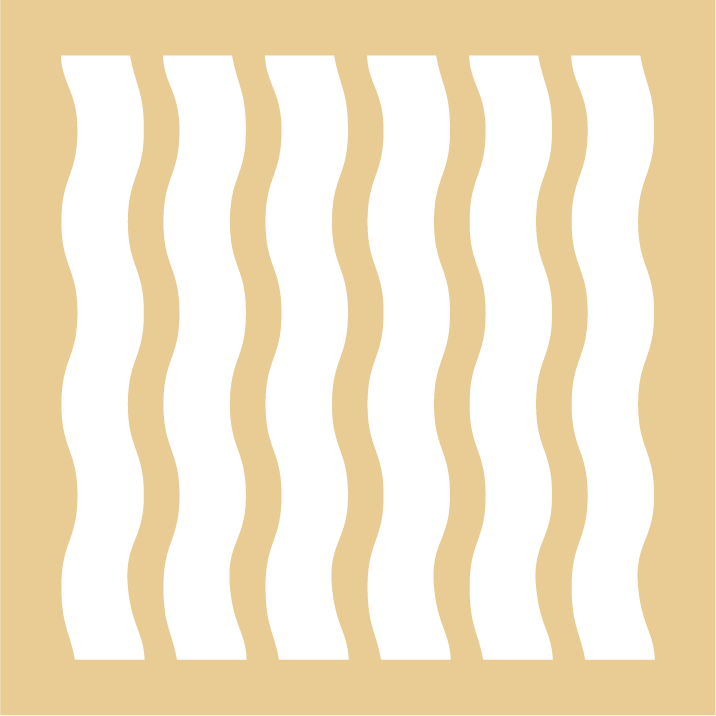
More Info
In Raŋga ga Rapiny Miny’tji | Sacred Object and Freshwater Designs (1963), the central figure is incorporated or contained within the clan designs. The shape evokes two bathi with hints of other referents—the yoku and the sea monster associated with mortuary rituals, which we will encounter later on in Maŋgalili saltwater paintings. The dillybags that contain yoku corms are analogous to ancestral wombs containing spirit children. The paintings also reference Ŋuykal (the Kingfish ancestor), who appears in the other three paintings of Wayawupuy.
– Howard Morphy
Additional Information
Decade
c.1963
Medium
Natural pigments on eucalyptus bark
Dimensions (IN)
32 1/8 x 19 3/4
Dimensions (CM)
81.6 x 50.2
Credit
Kluge-Ruhe Aboriginal Art Collection of the University of Virginia. Gift of John W. Kluge, 1997. 1996.0035.003.
Narrative
Maŋgalili
The Maŋgalili clan belongs to the Yirritja moiety. Their major spiritual theme revolves around the...
Location
1960s
The 1960s were a decade of tumult and triumph for Yolŋu art and artists. In...
About The Artist(s)

Clan
Maŋgalili
Artist Dates
c.1914-1969
Alternative Names
Nanjin, Nanung, Nanyan
Nänyin Maymuru
Nänyin Maymuru was the elder brother of Narritjin Maymuru. Along with his brother, he painted the Maŋgalili section of the Yirrkala Church Panels and developed the distinctive Maŋgalili school of painting continued by their children Baluka Maymuru, Galuma Maymuru and Naminapu Maymuru-White.
Collections Represented
Art Gallery of New South Wales
Art Gallery of Western Australia
Kluge-Ruhe Aboriginal Art Collection of the University of Virginia
